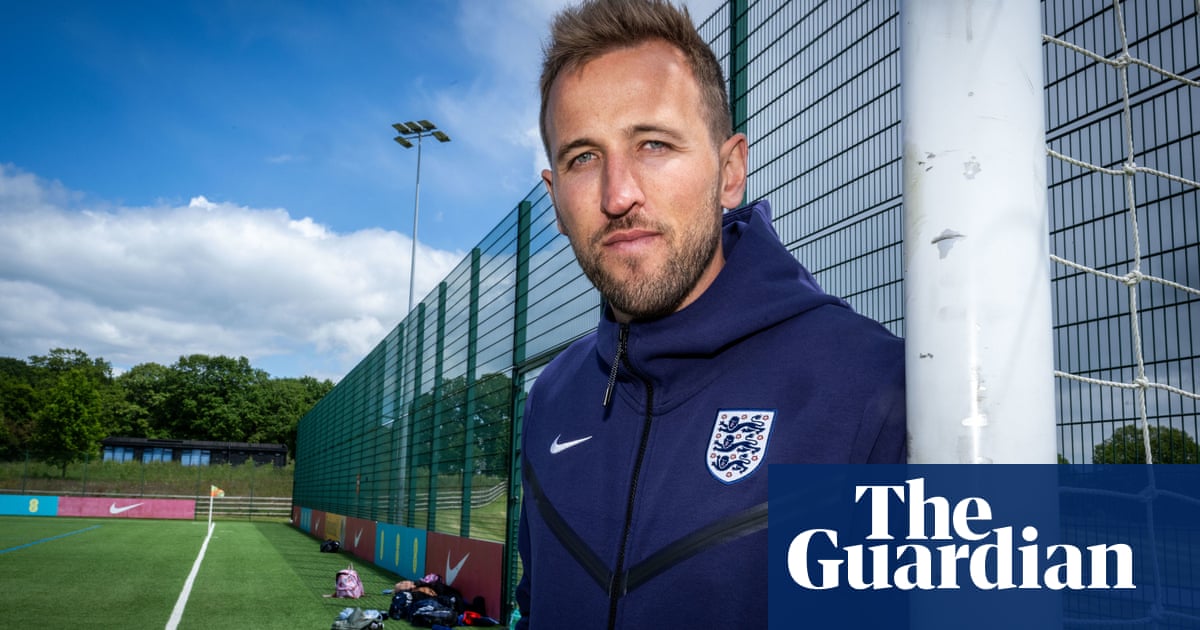World
World-class yet misunderstood, Harry Kane remains England’s form horse

Southgate in crisis. England in Euro flip‑flap flop. Kane: My (in hindsight) Sad and Doomed Trophy Hopes. Plus ça change, plus c’est the same bleeding thing all over again.
Whenever Harry Kane approaches a significant mark in his career it is always tempting to peer down the time tunnel in search of a poignant on‑this‑day‑style comparison. Jump back 10 years and Kane, more so than any other elite footballer, is likely to have been on the bench at AFC Egham or scoring a hat-trick against Bogford Cheesedown in the Copydex Industrial Sealants 37th‑tier playoff quarter-finals.
As England’s captain prepares to lead the team into this summer’s European Championship that glance back in time feels notably apt, with a sense that the past has finally begun to catch up with the present. Kane’s only action of the summer of 2014 was being summoned from the bench by the England Under-21 manager Gareth Southgate in the dying moments of a 3-1 Euro qualifying win against Wales, the fifth attacker used on the night behind Saido Berahino, Nathan Redmond, Tom Ince and Danny Ings.
Twelve months later Kane played every minute of that junior European championship as England exited limply at the group stage, leaving the unfancied Gareth under fire from the press and the class of 2015 dismissed as another beaten generation.
Gary Lineker lamented Southgate’s “exasperatingly amateurish” selections. There were calls for another root-and-branch re‑review of the so-called England DNA pathway instituted by (who he?) Dan Ashworth. “Young players don’t work hard enough,” raged Harry Redknapp, who had, presumably, actually met the dementedly committed teenaged Kane.
Two lone voices offered some positivity. Kane, who was according to the Guardian report “a cut above his teammates” during the key defeat by Italy, talked gamely about his dream of one day lifting a trophy with England. A little lost in the general outrage, Southgate talked at length about “some good characters that are going to come through this group and into the senior team”.
The point being Southgate was right, and remains right now as England settle into their pastoral training idyll before their opening game against Serbia in Gelsenkirchen on Sunday. Three years after the collapse of 2015, five members of that derided under‑21 team were part of Southgate’s England World Cup semi-final in Russia.
Just as unexpectedly Kane, one of those “good characters”, has become arguably England’s greatest player, at least according to Wayne Rooney, who knows a bit, and certainly outside of the only ones to win a cup 60 years ago.
This European Championship finals tournament is a huge moment for Kane, for the Kane Supremacy, and for his own sense of almost-greatness. He will be 31 next month, and 33 shortly after the next World Cup finishes. No doubt Kane wants to go on for ever and retire aged 65 to kick goals in the NFL. But history suggests the life of an England goalscorer is gruelling, and it is always a little later than you think. Rooney was 33 when he played his last game, Alan Shearer 29, Michael Owen 28, Lineker 31, Kevin Keegan 31, Bobby Charlton 32, Geoff Hurst 30.
With this in mind it is worth stating, once again, just how extraordinarily good Kane has been; and how vital he remains for England’s hopes now, despite the presence of starrier, more fashionable attackers.
It is worth looking at those England numbers again, just because they’re so unarguably good, beyond the reach of even the most committed hater. Sixty‑three goals in 91 games. Fifty-eight in 74 under Southgate; 12 goals in tournaments. Six in tournament knockout games. One World Cup golden boot. Best goals‑per‑game ratio of any England player with more than 30.
He remains at his peak, too. The season just past at Bayern Munich may carry its own note of trophy-less gallows humour, but on a personal note Kane has just conjured up the best debut overseas season for any English player, and done so while playing for the third-best team: 36 goals and eight assists in 32 Bundesliga games. Eight and four in the Champions League. European golden boot to go with three in the Premier League. This is a footballing machine.
So much so that you wonder at times if Kane was a little cooler, if he was called Blaze van der Sexdrive instead of Harry Kane, if he looked less like a Victorian actuary’s clerk with a heart of gold, if he was more clippable, more gratuitously flash, he might just get a little more credit. But then, misunderstanding Harry Kane has been a theme of his career, oddly for such a straightforward footballer.
Most obviously there is the irony of Kane, the ultimate team player, winning only individual awards but never team trophies. Then again, his entire career, bar one season, has been spent with teams that have an explicit aversion to winning. Would raking in three successive league titles as an ensemble piece at Manchester City make him a better footballer? Only for the furiously literal-minded.
after newsletter promotion
Clearly Kane stayed at Spurs a bit too long, but then it is easy to forget that his career has always seemed to strike him as a treat, a glorious bonus. Kane was never a prodigy. He skulked around the Football League on various loans. He loved finding his own ceiling at Spurs, but botched his own exit three years ago, trapped by his own contract.
Even moving to Bayern just as they stopped winning the league looks like a function of that mistake. Other elite clubs decided he was too expensive at 30. Bayern thought it looked like value. Their manager is Vincent Kompany. Is this a well‑run club? Or a club that Kane is again expected to carry to glory on his creaking, twanging back?
The sense of some basic misunderstanding of exactly what Kane has achieved is also there with England, who have been routinely accused of having an impossible hand of talent, envy of the world, such that not winning every trophy is seen as failure.
The truth is Kane’s most regular career attacking partner in the Southgate years has been Raheem Sterling (62 times) followed by Marcus Rashford (44), his most common midfield supply man Jordan Henderson. Do these really sound like A-list generational players? Or like very good footballers driven on by England’s only really world-class tournament attacker in that time, the man in the No 9 shirt?
And this is the real point around Kane at Germany 2024. He is still the only member of this team’s attack who has to date “done it” regularly for England. Around him are some startlingly talented players. But the fact remains Phil Foden has four goals in 34 caps. Bukayo Saka has had some wonderful games, but has missed a lot too and isn’t fully fit. Jude Bellingham already has the world in his palm. But he’s still only 20. His moments with England are all to come.
Whereas Kane is as ever the form horse. There is a tactical element here. To succeed in this England team Kane will need to play as he has at Bayern, as more of a classic 9 high up the pitch. England don’t need him as playmaker. With Bellingham and Foden on the pitch there is a danger of clogging that area. Perhaps Kane’s desire to drop deep is one reason those players have yet to really shine in that role. In this team, and for so many reasons, he needs to be the razor edge.









